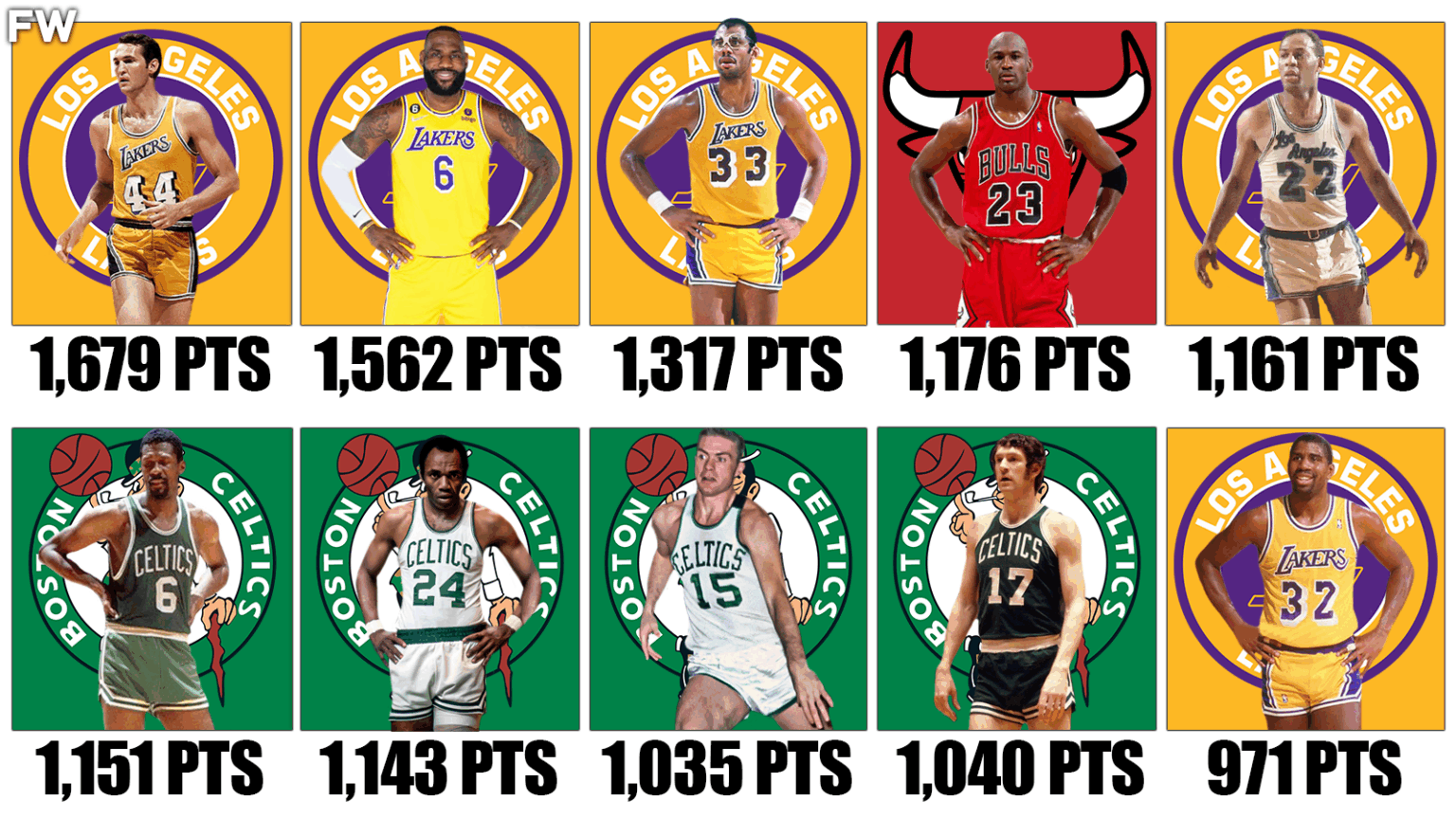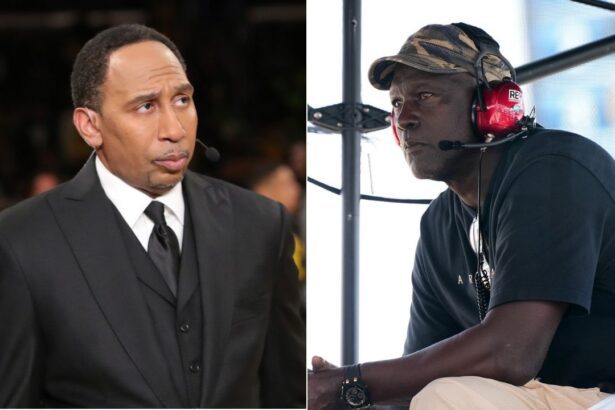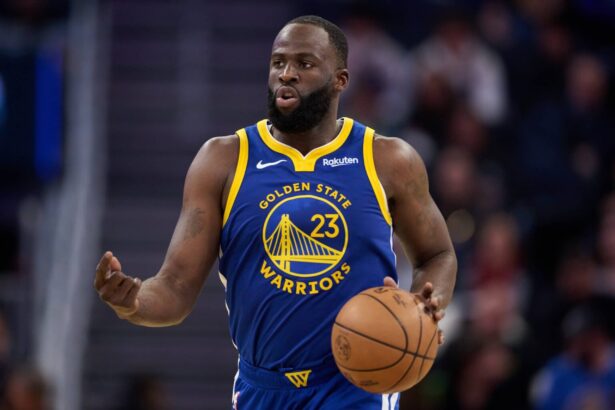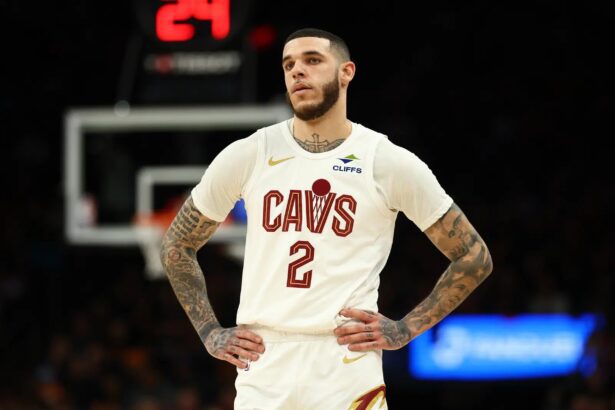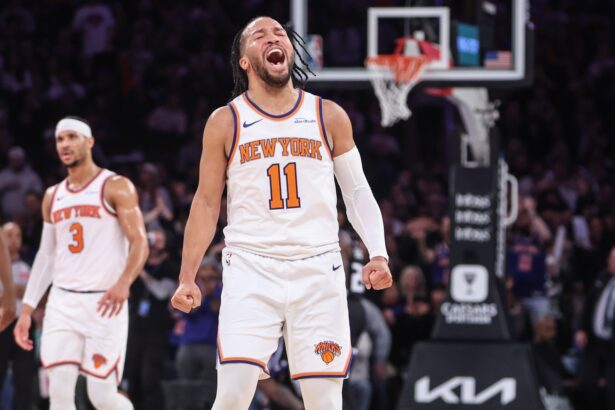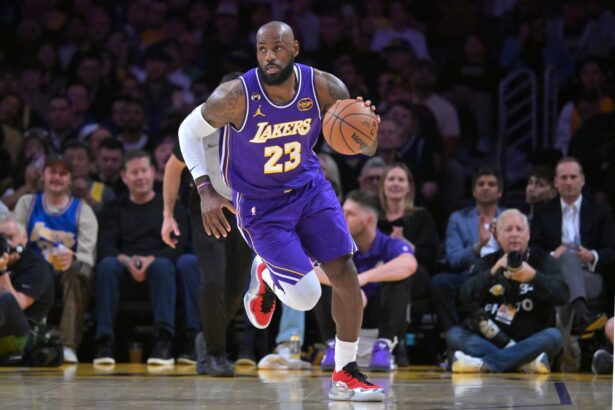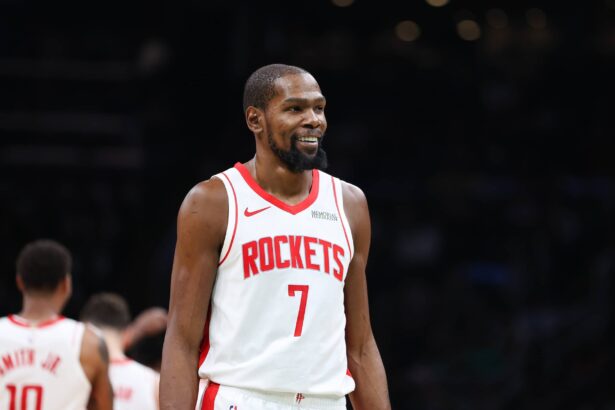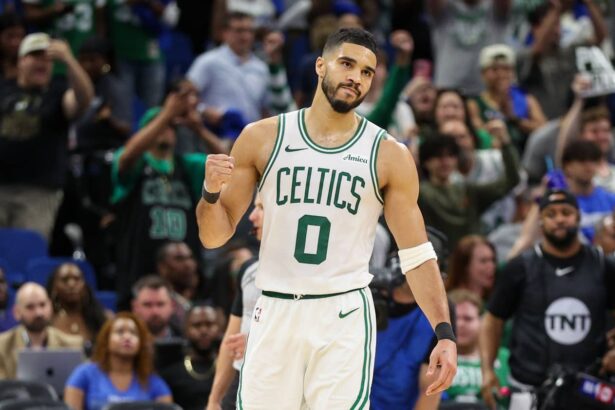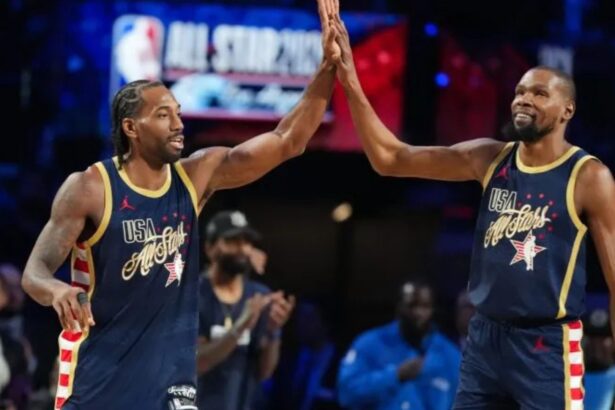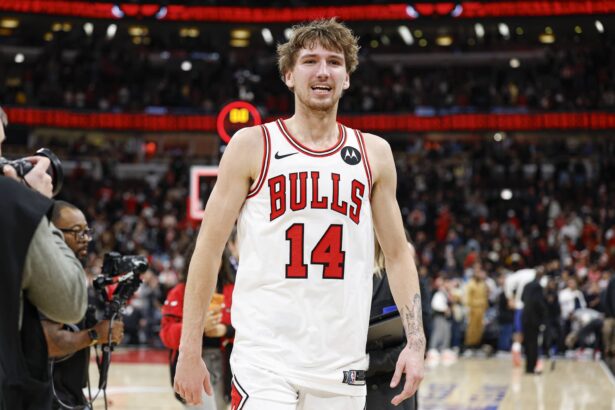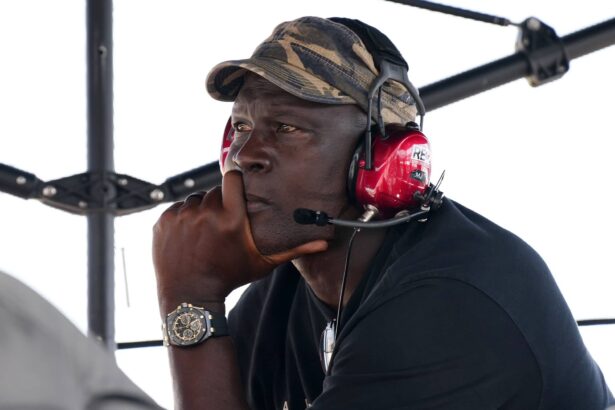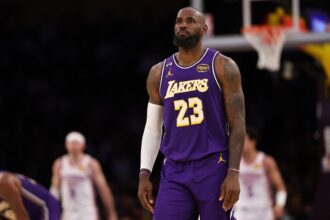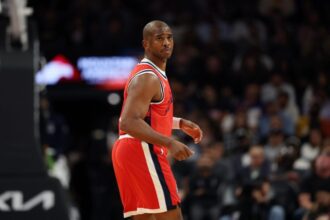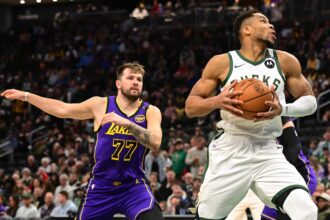As we just saw in 2023, the NBA Finals are where the stars come to shine as two teams collide for a chance at an NBA championship. The elite of the elite in the NBA rises to the occasion during the Finals to lead their team to glory and cement their names among the other legends of the past who have done the same. Some players earn Finals MVP honors for their defensive efforts, like Kawhi Leonard in 2014 and Andre Iguodala in 2015. Others earn their stripes by putting in elite all-around performances like we saw from Nikola Jokic in 2023.
- 10. Magic Johnson – 971 Points, 50 Games
- 9. John Havlicek – 1,040 Points, 47 Games
- 8. Tom Heinsohn – 1,035 Points, 52 Games
- 7. Sam Jones – 1,143 Points, 64 Games
- 6. Bill Russell – 1,151 Points, 70 Games
- 5. Elgin Baylor – 1,161 Points, 44 Games
- 4. Michael Jordan – 1,176 Points, 35 Games
- 3. Kareem Abdul-Jabbar – 1,317 Points, 56 Games
- 2. LeBron James – 1,562 Points, 55 Games
- 1. Jerry West (1,679 Points, 55 Games)
Then, there are the Finals performers who have separated themselves from the rest of their NBA contemporaries by lighting up the scoreboard on a consistent basis. Some of the game’s greatest players have carved out their legacies by becoming elite scorers on the NBA’s grandest stage. From Michael Jordan’s NBA record of 41.0 PPG in 1993 against the Suns to LeBron James’ incredible rally in 2016 to record the greatest upset in NBA playoff history against the Warriors, the game’s greatest players have all stepped up on the offensive side of the ball when it matters most. The players below made a living out of showcasing their scoring ability in the NBA Finals and are known as the best scorers under the most pressure.
These are the NBA players with the most career points in the NBA Finals.
10. Magic Johnson – 971 Points, 50 Games
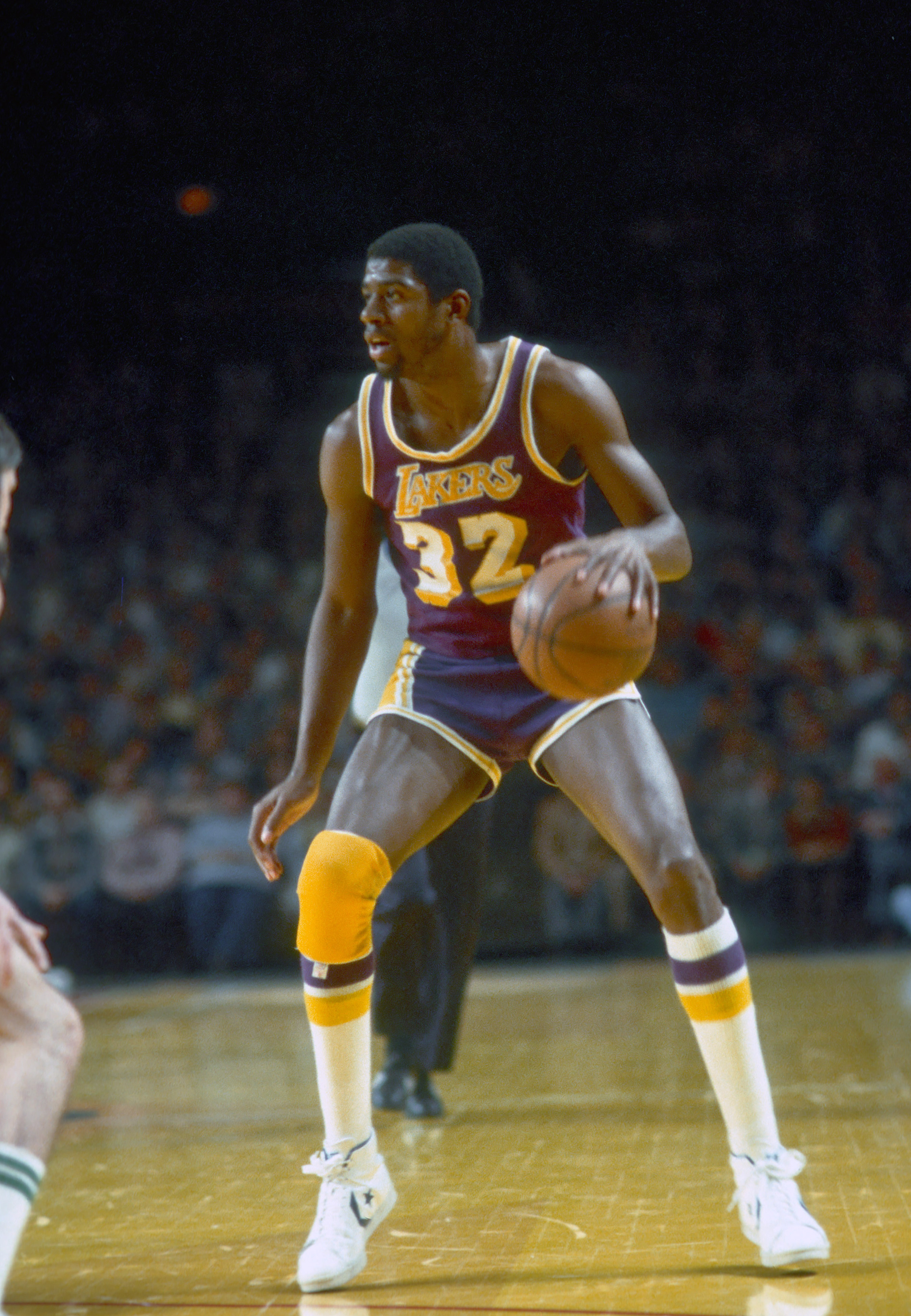
NBA Finals Stats: 19.4 PPG, 7.9 RPG, 11.7 APG, 2.0 SPG, 0.3 BPG
Magic Johnson was not typically known as a scorer, but with nine Finals Appearances in his NBA career, he was bound to make this list. Magic’s Finals quest began as a rookie in 1980 when he became the youngest Finals MVP in NBA history scoring a total of 129 points and averaging 21.5 PPG on 57.3% shooting. In 1982, Johnson and the Lakers would go back to the NBA Finals against the 76ers where Magic shined again but as a playmaker rather than a scorer. Magic needed just 97 points and 48 assists to earn the victory in the six-game series and win his second NBA title and Finals MVP award.
Magic and the Lakers would also appear in each of the next two NBA Finals but suffer losses to the Sixers in a sweep in 1983 and the Celtics in a seven-game thriller in 1984. Magic would combine for 202 of his career Finals points over those two series. The Lakers would make their fourth straight appearance in the NBA Finals in 1985 in another matchup with Boston. This time, the Lakers took care of business with Kareem winning Finals MVP but Magic contributed 110 total points in the series while also dishing out 14.0 APG and grabbing 2.2 SPG.
After failing to reach the NBA Finals in 1986, Johnson and the Lakers would go back-to-back as NBA champions for their fourth and fifth titles of the decade. In 1987, Magic would take home his third Finals MVP award by leading the Lakers to a six-game series win over the Celtics. Johnson led the Lakers in scoring with 157 points and averaged 26.2 PPG, 13.0 APG, and 8.0 RPG. In 1988, Magic and the Lakers would squeak out a seven-game series win over the Pistons. Magic was not named Finals MVP but did finish with 148 points scored in the series, just 6 points behind Finals MVP James Worthy.
Magic and the Lakers would appear in two more Finals before his career was over in 1989 and 1991. Both series ended in losses for Los Angeles but Magic’s legacy was already solidified as a five-time NBA champion, three-time Finals MVP, and three-time MVP.
9. John Havlicek – 1,040 Points, 47 Games
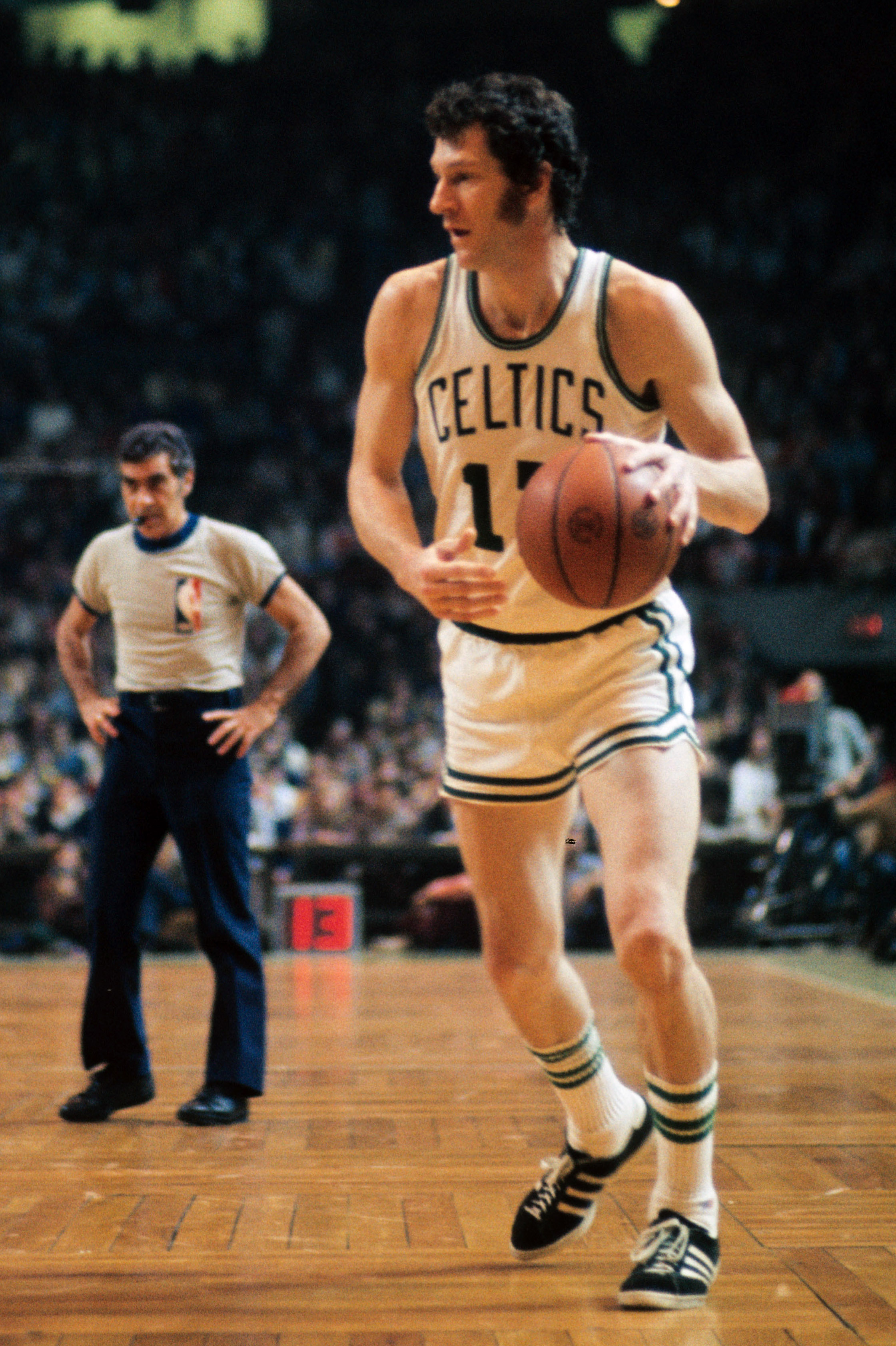
NBA Finals Stats: 21.7 PPG, 7.4 RPG, 4.1 APG
Even with eight NBA championships to his name, John Havlicek remains one of the more underrated players in NBA history. Havlicek was a member of the Boston Celtics for 16 seasons, becoming an NBA champion for exactly half of his professional career. In Boston’s first championship with Havlicek in 1963, Hondo only scored 34 points total in the four-game sweep of the Lakers, or 8.5 PPG. As his minutes increased over the next two Finals wins over the Warriors and Lakers again, Havlicek’s scoring hovered just above 18.0 PPG and 90 total points in each championship victory.
Over the next two Finals appearances in 1966 and 1968, Havlicek would have his best performances yet. He went for a total of 163 points in 1966 and 164 points in 1968. He shot just above 42.0% from the floor in both series and averaged a career-high in the Finals to that point with 27.3 PPG in 1968.
In the 1969 NBA Finals, Havlicek led the Celtics to a seven-game series thriller over the Lakers, where he averaged a new Finals career-high with 28.3 PPG and a total of 198 points but lost out on Finals MVP to Jerry West. In 1974, Havlicek would finally earn a Finals MVP, scoring 185 points, or 26.4 PPG, in a seven-game series win over Kareem Abdul-Jabbar and the Milwaukee Bucks. As the winningest small forward in NBA history when it comes to NBA championships, Havlicek’s spot on this list is no surprise to those of us that know what he meant to Boston’s success.
8. Tom Heinsohn – 1,035 Points, 52 Games
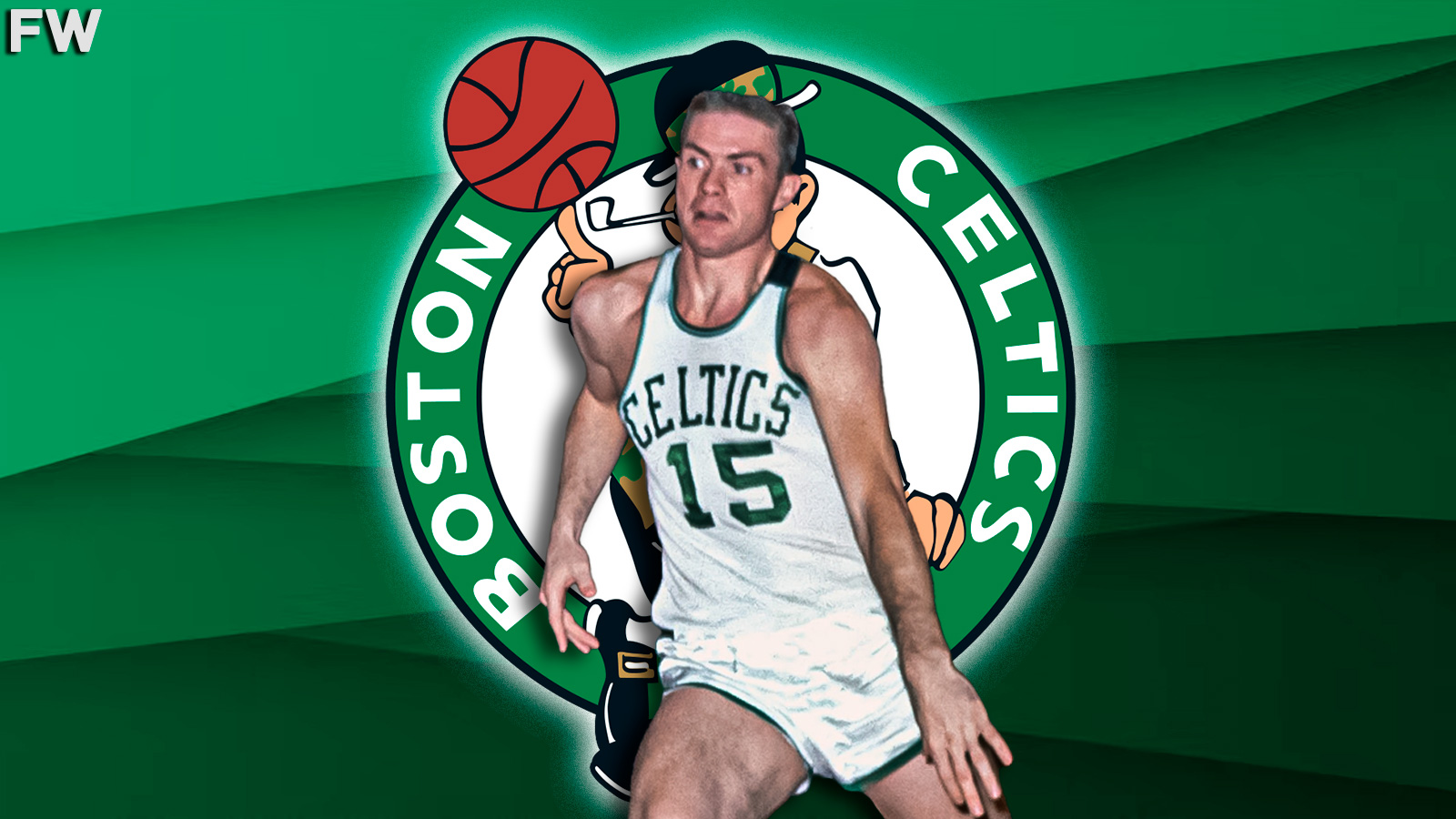
NBA Finals Stats: 19.9 PPG, 9.1 RPG
Tom Heinsohn is another one of the key members of the Boston Celtics dynasty during the 1960s. As a player from 1957 thru 1965, Heinsohn was a winner of eight NBA championships along with the 1957 Rookie of the Year and six All-Star selections. At his peak during the 1960s, Heinsohn was a consistent 20.0 PPG scorer for Boston as they wiped away all of the competition during that time.
Heinsohn accumulated an overall Finals record of 8-1, with his only loss coming in the 1958 loss to the St. Louis Hawks. Heinsohn would make his Finals debut in 1957 with a performance that saw him average 24.2 PPG over seven games or score 168 total points. In 1959 and 1960, Heinsohn would accumulate 254 points between two Finals series wins over the Lakers and Hawks to bring his championship total to three.
Heinsohn would then be a member of Celtics teams that advanced to and won every single NBA Finals from 1961 thru 1965. Over the first three Finals from 1961 thru 1963, Heinsohn scored at least 100 points in all of them and shot at least 38.6% from the field. Although he would score less than 100 total points in each of his final two championship wins in 1964 and 1965, Heinsohn still averages over 11.0 PPG in each series and retired an eight-time NBA champion.
7. Sam Jones – 1,143 Points, 64 Games
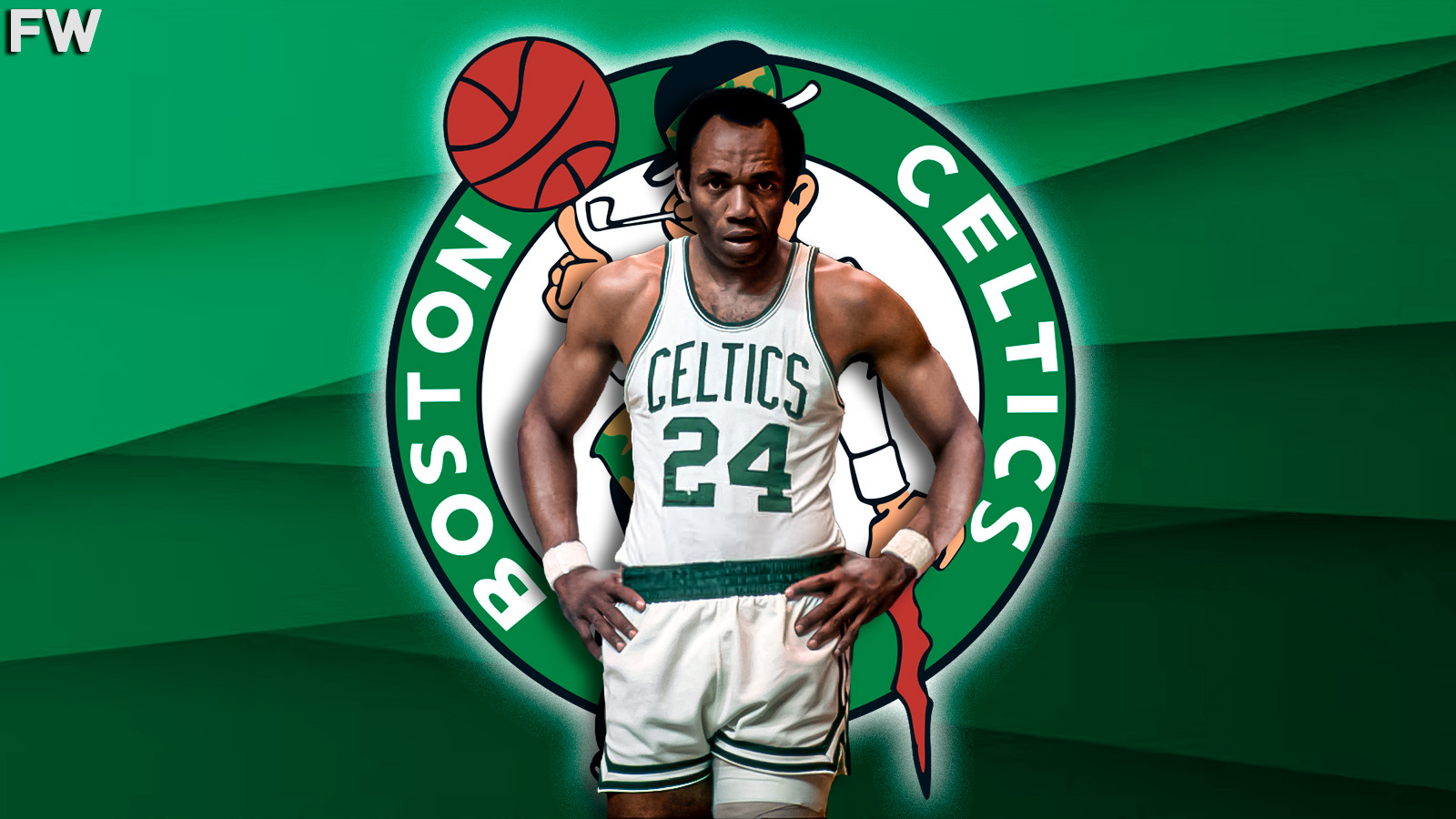
NBA Finals Stats: 17.9 PPG, 4.9 RPG
Many may not know this, but Sam Jones has the second-most NBA championships by any player in NBA history, with 10. Jones shared the court with Bill Russell and company during their dynastic run during the 1960s as they won eight straight NBA championships from 1959 thru 1966. Although his role was limited over the first four championship runs, Jones proved his worth over the final six championship seasons with 20.0 PPG or more each year during the playoffs.
Jones’ impact could hardly be felt over his first four Finals series. Jones would pour in less than 100 points in each of those four series as the Celtics went 3-1 over the course of that span and Jones only averaged over 10.0 PPG once. The 1961 NBA Finals would be the final time Jones would not record at least 100 points in one Finals series in his career.
The Celtics would go on to win the next seven NBA championships in a row with Jones being at the forefront of Boston’s offense. He would have three series in which he accumulated over 145 points including the 1962, 1963, and 1965 Finals. In 1966, he would score the most points he ever scored in a Finals series with 160 and averaged 22.9 PPG in the seven-game series win over the Lakers.
6. Bill Russell – 1,151 Points, 70 Games
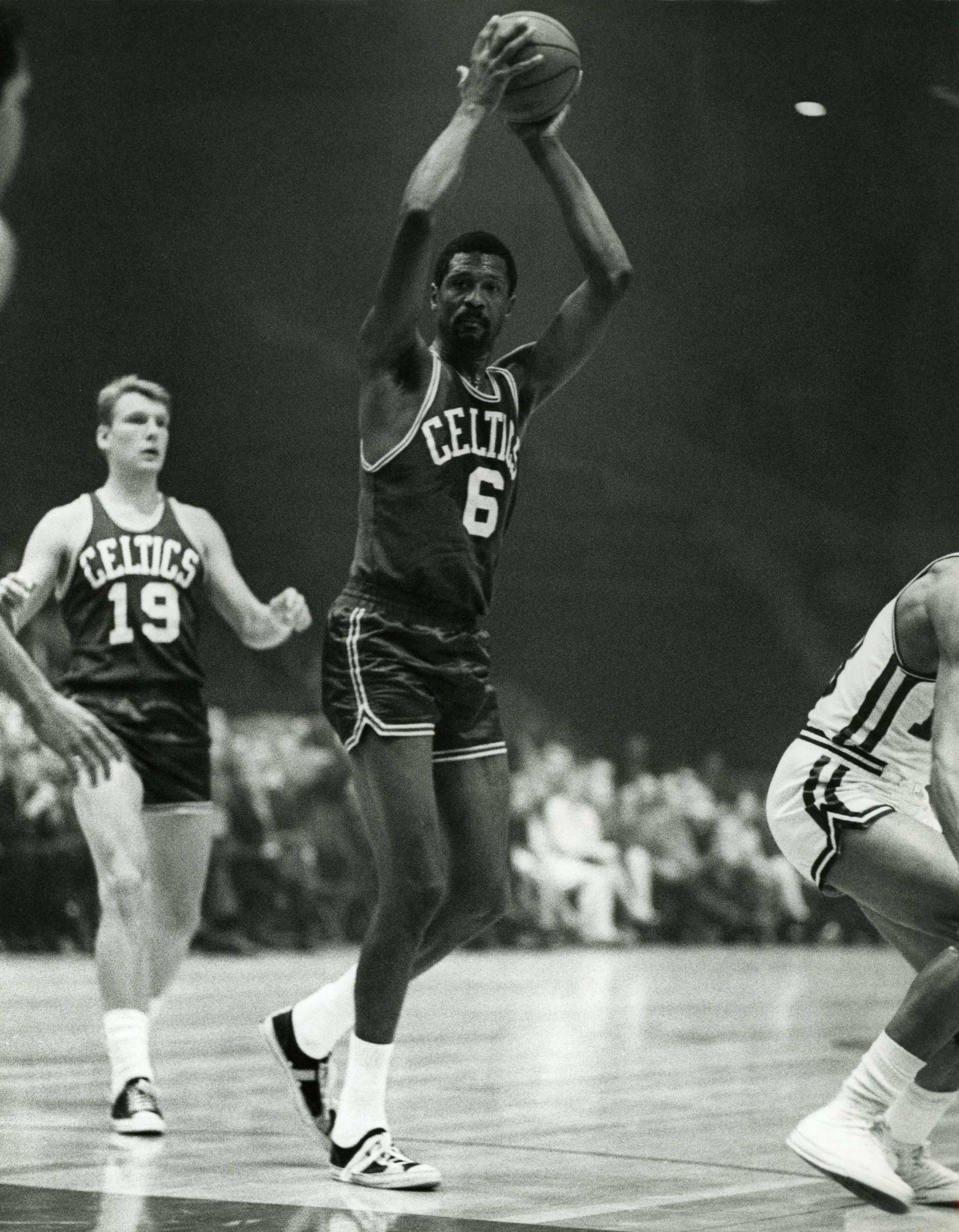
NBA Finals Stats: 16.4 PPG, 24.5 RPG
Next up on our list is the winningest player in NBA history. Bill Russell played just 13 seasons in the NBA and had an overall record of 11-1 in 12 Finals series. The 11 NBA championships aren’t the most impressive thing about Russell, who is often criticized for his lack of scoring in such a fast-paced era of basketball. Rather it was the sacrifices he made to his offensive game in order to excel at defense and rebounding in order to help his team win.
Scoring was not Russell’s specialty but he could dominate at it from time to time. In four of his first five championships, Russell failed to reach 100 points scored for the series but the Celtics won four NBA titles at the time. Of Russell’s 11 championship wins, there were only two occasions in which he reached over 150 points scored in the series. In 1962, he scored 160 points and pulled down 189 rebounds in a seven-game series win over the Lakers. In another win over the Lakers in 1966, Russell scored 165 total points and grabbed 170 rebounds for an average of 23.6 PPG and 24.3 RPG.
Russell’s 11 championships are one of the most unbreakable records in NBA Finals history, and the eight straight championships they won from 1959 thru 1966.
5. Elgin Baylor – 1,161 Points, 44 Games
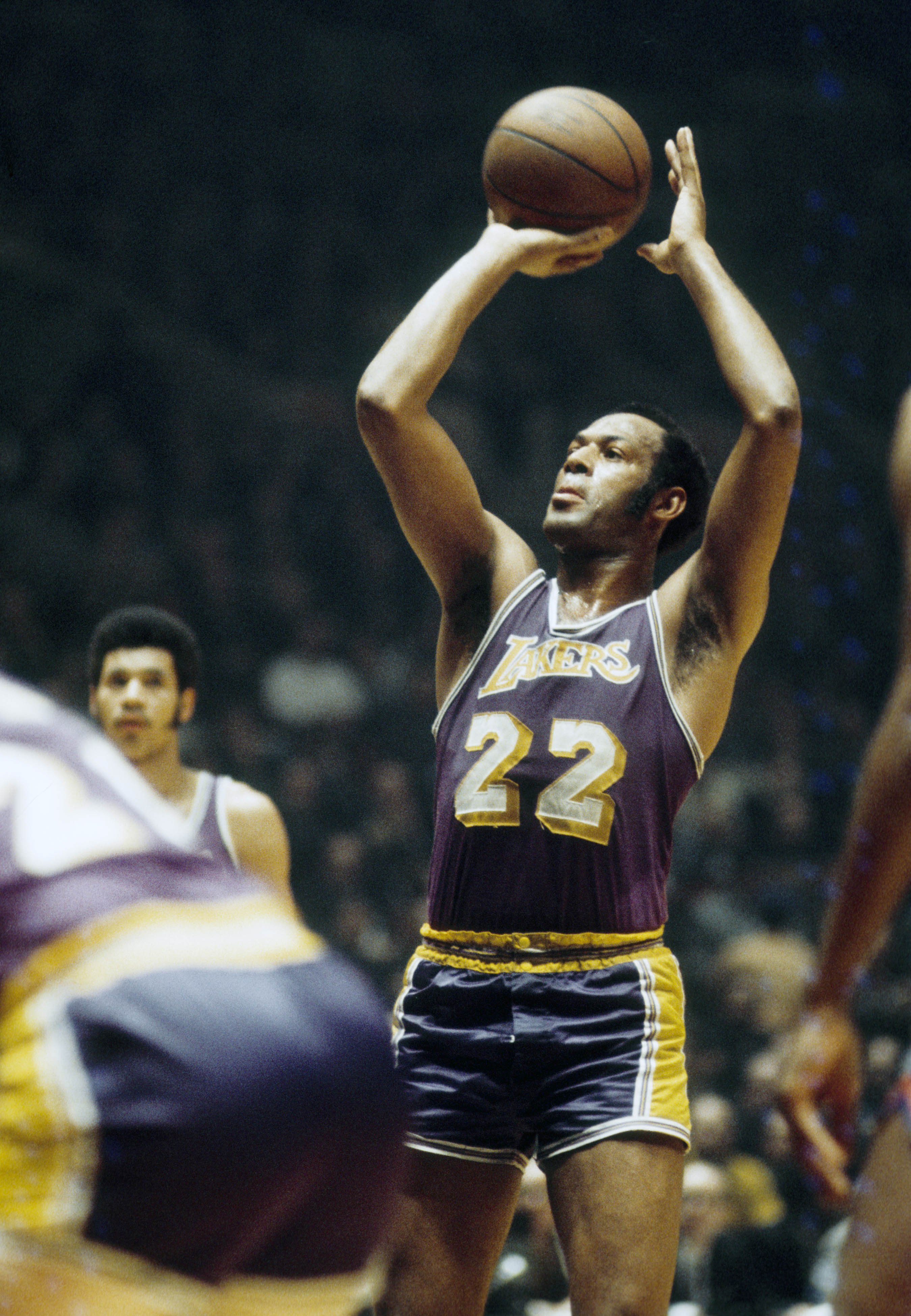
NBA Finals Stats: 26.4 PPG, 13.5 RPG
Elgin Baylor has to be not only one of the most underrated players ever but also one of the most unlucky. Baylor went to a total of seven NBA Finals in his NBA career and fell short in every single one. It is a shame, too, because Baylor is easily one of the greatest NBA Finals performers ever. In 1962, Baylor had a 61-point game in the Finals, which still stands as an NBA record to this day. That 1962 series was also historic as it saw Baylor score a Finals career-high 284 points and average 40.6 PPG on 43.0% shooting as they fell in seven games to the Boston Celtics.
In 1963, Baylor would have another Finals series with over 200 points scored when he went for 203 points in six games for an average of 33.8 PPG. Over the course of his final four Finals series, Baylor would accumulate 125 total points or more in every one but again, they all resulted in losses for him and the Lakers.
Baylor is a perfect example of an NBA legend who should not get judged for his Finals record but for the way he played when he got his team to the big games. Baylor has one of the highest career scoring averages in the NBA Finals with 26.4 PPG over the course of 44
4. Michael Jordan – 1,176 Points, 35 Games
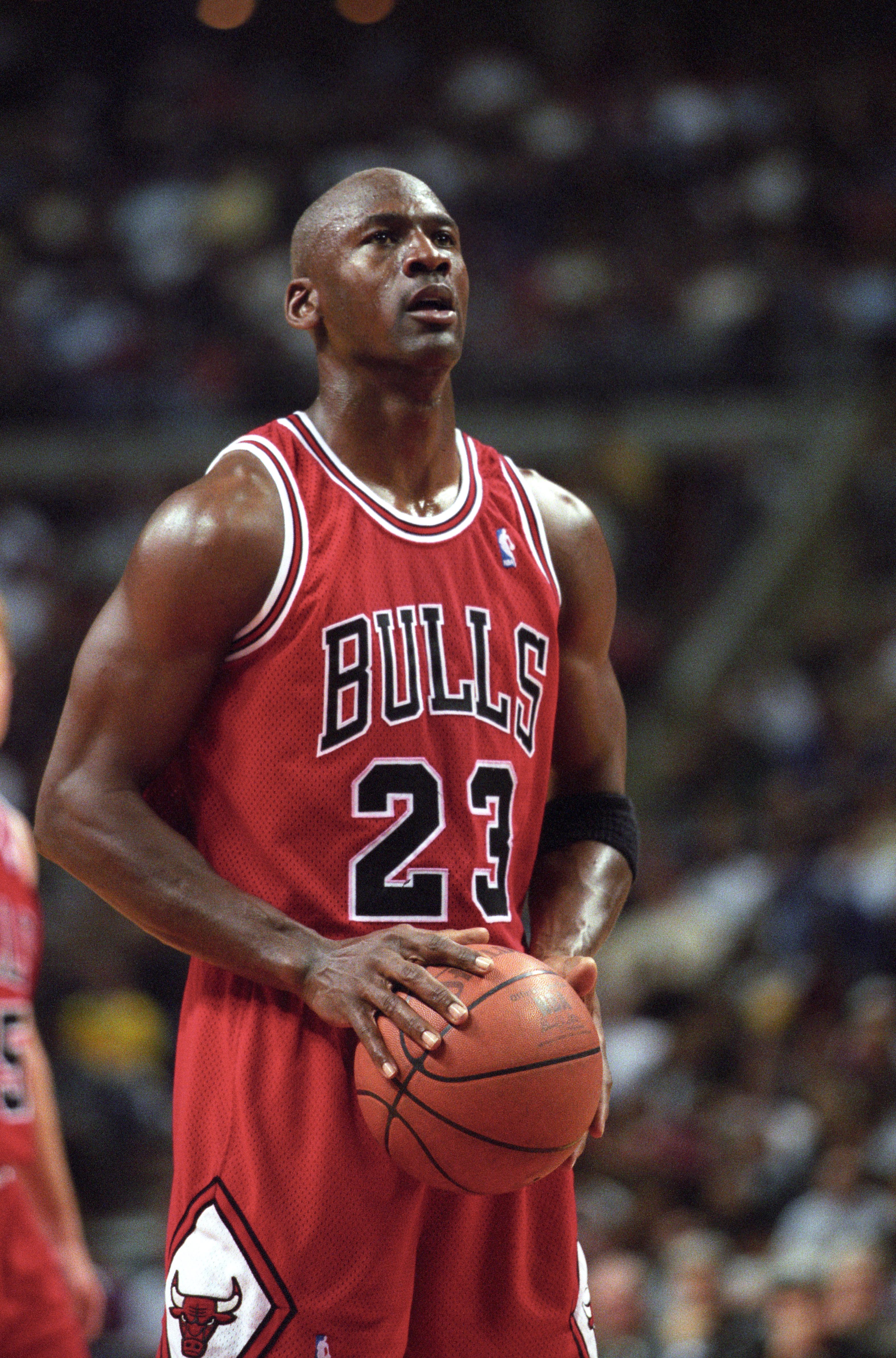
NBA Finals Stats: 33.6 PPG, 6.0 RPG, 6.0 APG, 1.8 SPG, 0.7 BPG
Michael Jordan is the greatest Finals performer in NBA history. With six Finals MVPs, an undefeated 6-0 record, and a career Finals scoring average of 33.6 PPG, his Finals resume is simply unmatched by any other player ever.
Jordan hardly disappointed fans on the NBA Finals stage, never going for less than 155 points in total in any Finals series. In his NBA Finals debut in 1991, Jordan had the lowest scoring output of any Finals series he had ever been a part of. He totaled 156 points in five games for an average of 31.2 PPG on 55.8% shooting.
In each of his next two Finals in 1992 and 1993, Jordan topped the 200-point mark fairly easily. In 1992 against Portland, Jordan scored 215 points in six games to average 35.8 PPG and take home his second Finals MVP. In 1993, Jordan would have the best offensive Finals series, scoring 246 points in six games against the Suns for an NBA-record 41.0 PPG on 50.8% shooting.
The second three-peat would be a slightly different story as Jordan scored a bit less over his next two Finals wins. In 1996 against Seattle, he would score just 164 points over six games but still earned his fourth ring and fourth Finals MVP. In 1997 against the Jazz, he would score 194 points for an average of 32.3 PPG and his fifth NBA championship. In his grand finale in 1998, Jordan would top the 200-point mark once again with 201 points against the Jazz in another six-game series win and his second three-peat as NBA champion.
3. Kareem Abdul-Jabbar – 1,317 Points, 56 Games
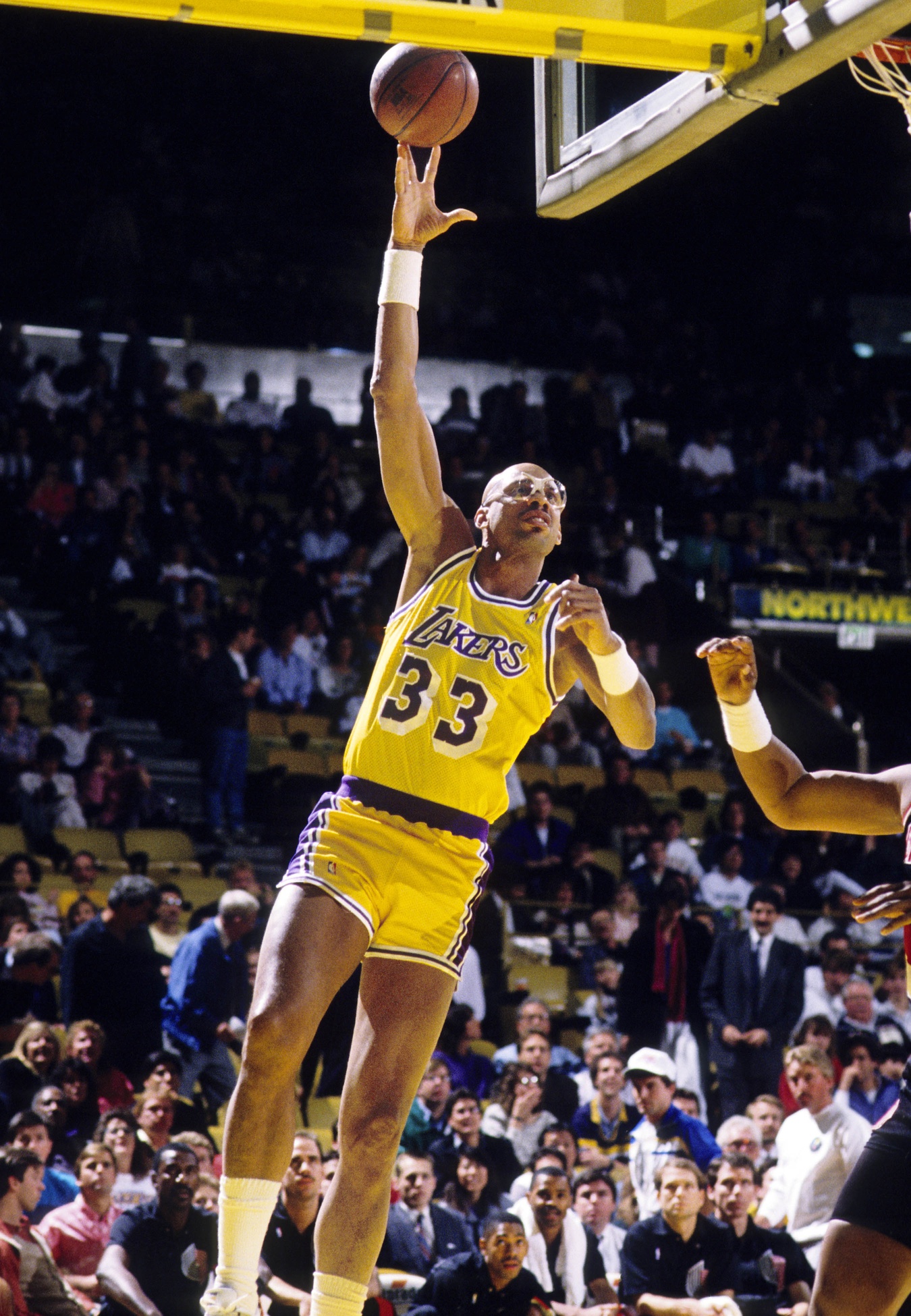
NBA Finals Stats: 23.5 PPG, 9.1 RPG, 3.2 APG, 0.9 SPG, 2.2 BPG
In his stellar NBA career filled with records and accomplishments, one of the most impressive marks on Kareem Abdul-Jabbar’s record is his 6-4 record in 10 Finals appearances. During his earlier days with the Milwaukee Bucks, Kareem led the team to two different Finals appearances. In 1971, Kareem won an MVP award, championship, and Finals MVP award as he led Milwaukee to their first NBA title averaging 27.0 PPG and 18.5 RPG on 60.5% shooting from the field while scoring a total of 108 points in a four-game sweep of the Bullets.
During the 1980s, Kareem and Magic Johnson led the Los Angeles Lakers to eight NBA Finals appearances and five NBA championships. In Finals wins in 1980 and 1982, Kareem went for over 100 points in each series and averaged 33.4 PPG in 1980 and just 18.0 in 1982. In losses in 1984 and 1985 to the Sixers and Celtics, Kareem underperformed greatly with less than 1100 points scored in the 1983 series and 26.6 PPG in 1984.
In 1985, Kareem would win the only Finals MVP of his Lakers career in a six-game series win over the Celtics. Kareem would accumulate 154 points for an average of 25.7 PPG to earn those Finals MVP honors. The story would be very different for Kareem over the course of his final three Finals appearances.
The Lakers would go back-to-back as NBA champions in 1987 and 1988 but by this time, Father Time had caught up with Kareem. He scored 130 points in their 1987 victory over Boston but failed to reach the 100-point mark in a seven-game series with the Pistons in 1988. He averaged only 13.1 PPG in that series but the Lakers still pulled it out. In 1989, in a loss to Detroit, he averaged just 12.5 PPG for a total of 50 points in four games.
2. LeBron James – 1,562 Points, 55 Games
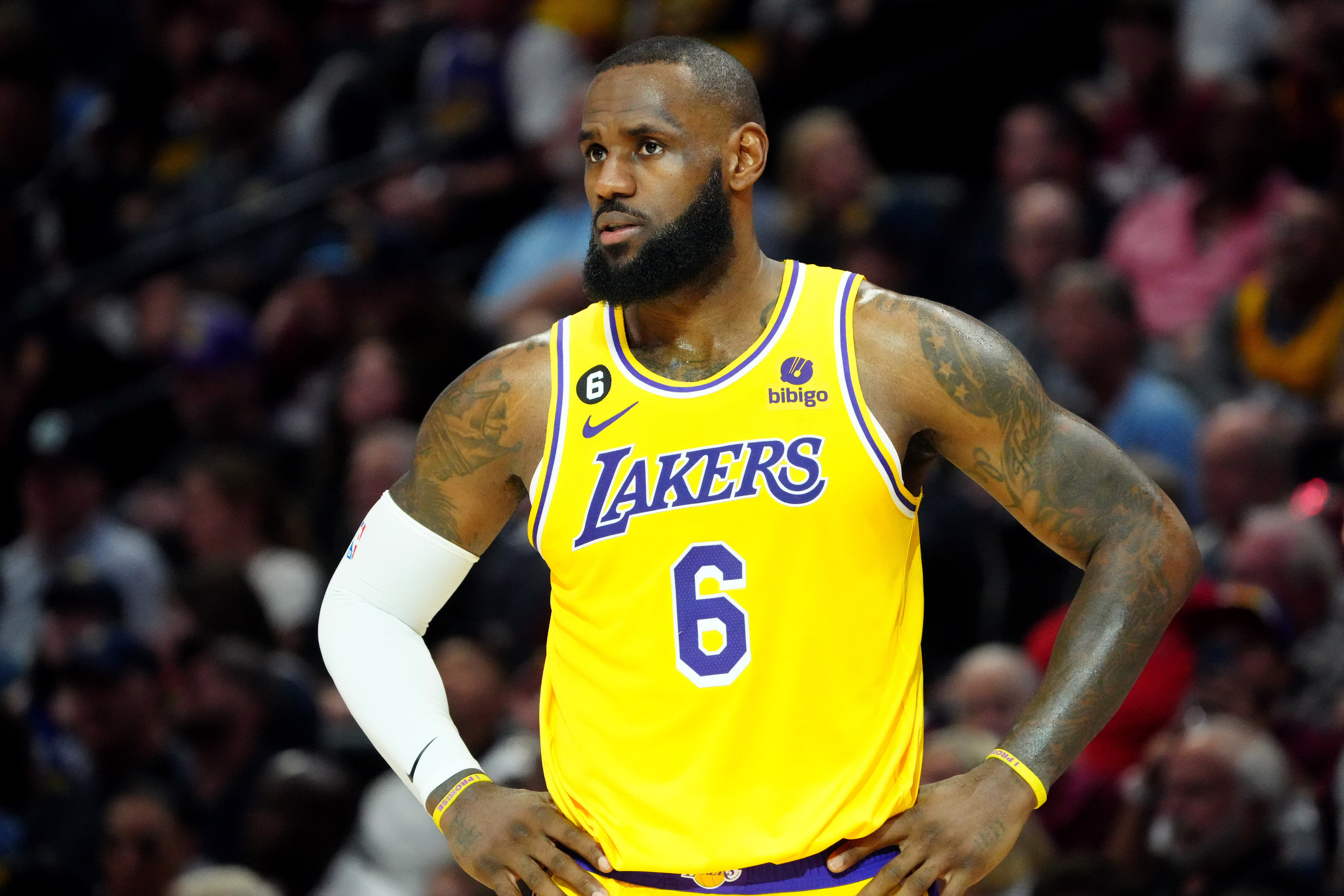
NBA Finals Stats: 28.4 PPG, 10.2 RPG, 7.8 APG, 1.7 SPG, 0.8 BPG
When it comes to players over the last 20 seasons, there has been no player with the Finals resume that LeBron James has. James has accumulated a 4-6 record in the NBA Finals while delivering championships to three different NBA franchises during that time. He went to eight straight NBA Finals from 2011 thru 2018 with the Miami Heat and Cleveland Cavaliers, with a record of 3-5 in those series.
The first two Finals appearances for James in his career were the most embarrassing of his career for sure. In 2007, James’ Cavaliers were swept by the Spurs in four games as James struggled in his Finals debut. He scored just 88 total points, averaging 22.0 PPG while shooting under 40.0% from the field. Then, in the biggest blemish on his career resume, James folded under pressure against the Mavericks in 2011. James would have just 107 points in six games, or 17.8 PPG in a series that the Miami Heat were heavily favored.
This was the beginning of a streak of eight straight Finals appearances for LeBron that resulted in his first two championships and Finals MVP awards in 2012 and 2013. In 2012, James went for 148 points in five games over the Thunder and averaged 28.6 PPG on 47.2% shooting. In 2013, the series would go seven games against the Spurs with LeBron scoring 177 points, averaging 25.3 PPG, and leading the Heat to victory in seven games.
The following two series would be losses to the Spurs while he was with the Heat and the Warriors while he was with the Cavaliers. In 2015 against the Warriors, James would go for over 200 points in the Finals for the first time but lost in six games despite 35.8 PPG on 39.8% shooting. Then, in 2016, James led the greatest comeback in NBA history by defeating the 73-9 Warriors in seven games. LeBron earned the third Finals MVP of his career with 208 total points, or 29.7 PPG, as well as 11.3 RPG, 8.9 APG, 2.6 SPG, and 2.3 BPG.
The flowing two series would be losses for LeBron and the Cavaliers in 2018 and 2018 but James was still the best player on the court by far. He would average 33.6 PPG in a five-game loss in 2017 with 168 total points on 56.4% shooting. The 2018 Finals would be a sweep in favor of Golden State but Jameslit it up with 136 total points or 34.0 PPG, on 52.7% shooting.
The last time that we saw LeBron James in the NBA Finals would be in 2020 with the Lakers during the Bubble. James and teammate Anthony Davis would both score 150 points or more with James leading the way at 179 total points. He earned his fourth Finals MVP in a six-game series win over the Heat as he averaged 29.8 PPG on 59.1% shooting for his fourth NBA title and Finals MVP award.
1. Jerry West (1,679 Points, 55 Games)
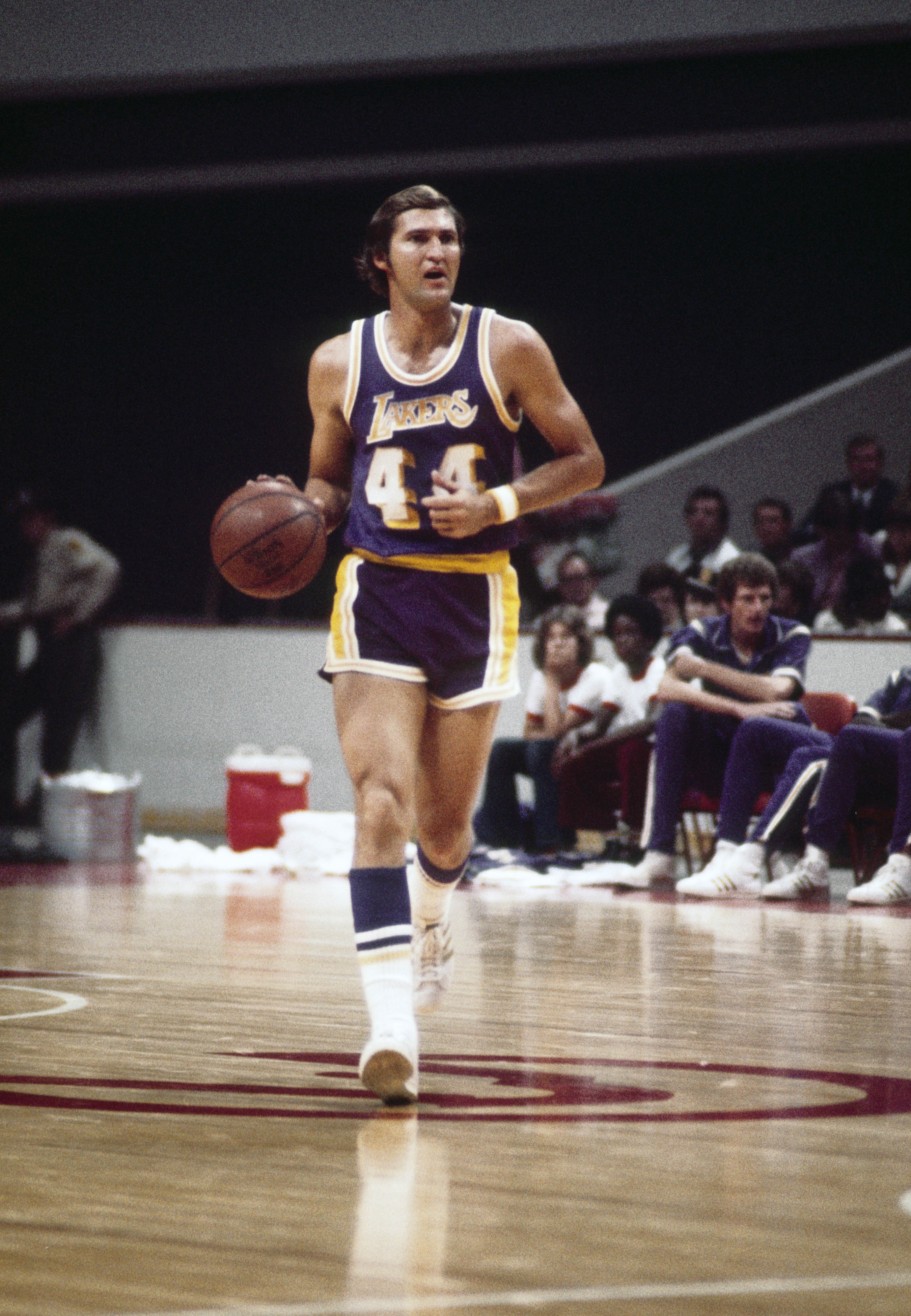
NBA Finals Stats: 30.5 PPG, 5.0 RPG, 5.6 APG
Jerry West is often left out of all-time great conversations due to his 1-8 overall record in nine NBA Finals appearances. West has turned in some of the greatest Finals performances ever despite that losing record, including 37.9 PPG in a losing effort in 1969 when he became the only player in NBA history to win Finals MVP on the losing side of things.
West couldn’t help but lose his first six NBA Finals in a row to one of the greatest dynasties in the sport’s history, the Boston Celtics of the 1960s. The first of these losses came in 1962 when West and teammate Elgin Baylor both went for over 200 points in the series but it still wasn’t enough to take down Boston. In 1965, West would take over the Lakers as their No. 1 option but still find themselves falling to the Celtics at the end of the year even with West going for 177 points in five games or 33.8 PPG on over 42.0% shooting.
In 1966, West was able to push the Celtics to seven games with 237 points over the course of the series on 51.5% shooting but once again, the Lakers fell just short. This would also be the case in 1968 and 1969 against the Celtics when West was the best offensive player on the floor who scored over 185 points in each series but lost to those pesky Celtics both times.
West would lead the Lakers to the 1970 NBA Finals as well but this time, the New York Knicks would be waiting for them to determine an NBA champion. West was spectacular once again with 219 points over seven games for an average of 31.3 PPG, but it was the Knicks who came out on top as champions. In 1972, after years of waiting, West finally became an NBA champion in a five-game thrashing of the Knicks. The Lakers didn’t need West to be his same old self as he scored just 99 points to average 19.8 PPG for the series yet won in convincing fashion.
West’s Finals record may be all people talk about but the way he handled the competition was legendary in itself regardless of the losses that piled up on him trying to dethrone a dynasty. As you can see from our explanation, it should come as no shock that Jerry West is the NBA Finals all-time leading scorer even 50 years after playing his last Finals game.
We sincerely appreciate and respect you as a reader of our site. It would help us a lot if you follow us on Google News because of the latest update.
Thanks for following us. We really appreciate your support.

